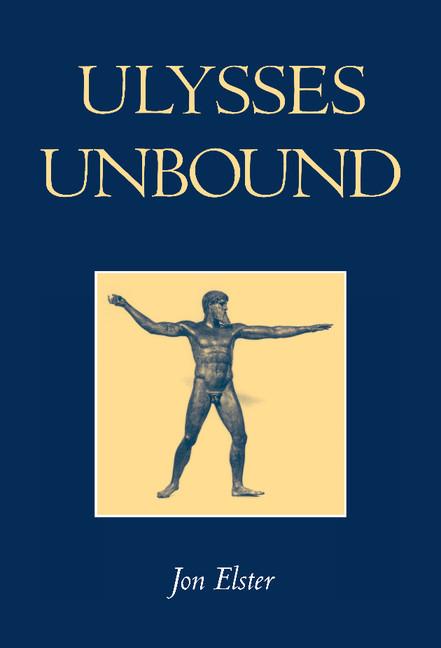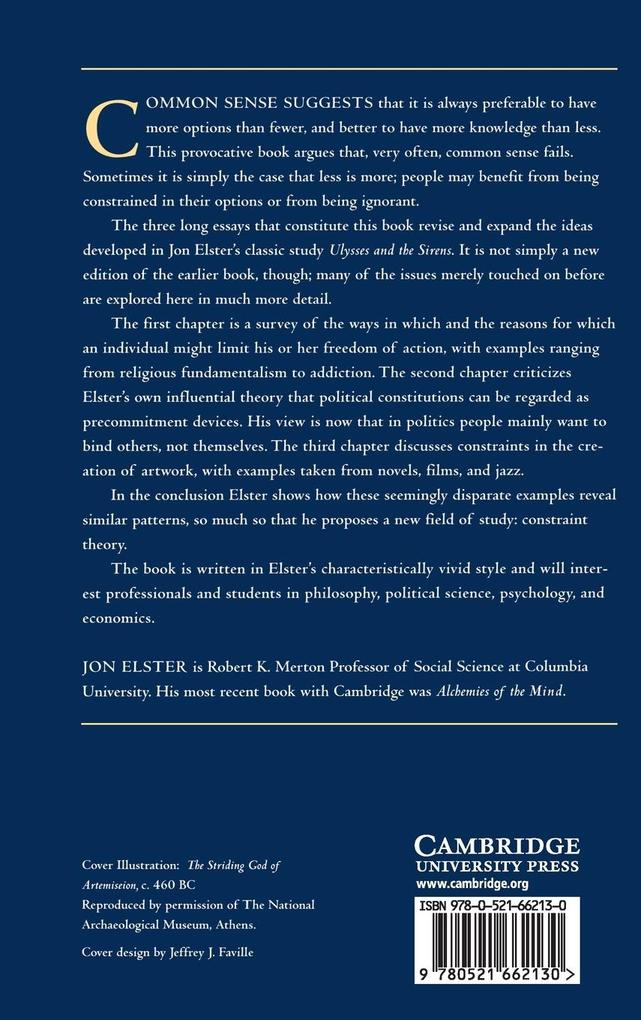Common sense suggests that it is always preferable to have more options than fewer, and better to have more knowledge than less. This provocative book argues that, very often, common sense fails. Sometimes it is simply the case that less is more; people may benefit from being constrained in their options or from being ignorant. The three long essays that constitute this book revise and expand the ideas developed in Jon Elster's classic study Ulysses and the Sirens. It is not simply a new edition of the earlier book, though; many of the issues merely touched on before are explored here in much more detail. Elster shows how seemingly disparate examples which limit freedom of action reveal similar patterns, so much so that he proposes a new field of study: constraint theory. The book is written in Elster's characteristically vivid style and will interest professionals and students in philosophy, political science, psychology, and economics.
Inhaltsverzeichnis
Preface and acknowledgments; Part I. Ulysses Revisited: How and Why People Bind Themselves: 1. Introduction: Constraint theory; 2. Passion as a reason for self-binding; 3. Time-inconsistency and discounting; 4. Time-inconsistency and strategic behavior; 5. Passion as a device for self-binding; 6. Variations on a Russian nobleman; 7. Addiction and precommitment; 8. Obstacles, objections and alternatives; Part II. Ulysses Unbound: Constitutions as Constraints: 9. Introduction; 10. Disanalogies with individual precommitment; 11. The nature and structure of constitutions; 12. Constraints on constitution-making; 13. Two levels of constitutional precommitment; 14. Self-binding in Athenian politics; 15. Interest and passion in Philadelphia and Paris; 16. Time-inconsistency, discounting and delays; 17. Omnipotence, strategic behavior and separation of powers; 18. Efficiency; 19. Obstacles and objections; 20. Ulysses unbound; Part III. Less is More: Creativity and Constraints in the Arts: 21. Introduction; 22. Daydreaming: creativity without constraints; 23. Constraints and conventions in the arts; 24. Constraints, value, and creativity; 25. Originality, authenticity, and creativity; 26. The Hays code; 27. Lucien Leuwen as an empty set; 28. Randomization in the arts; 29. Creativity and constraints in jazz; 30. Obstacles and objections; Coda; References.













